His Holiness Patriarch Kirill of Moscow and All Rus'
The Church’s communication with the world external to her is a special but integral part of Orthodox mission. This ministry is not always the direct proclamation of the Word of God. However, it helps millions of people to see Orthodoxy from various viewpoints and also to come to feel the beauty and power of Orthodoxy.

General biographic data
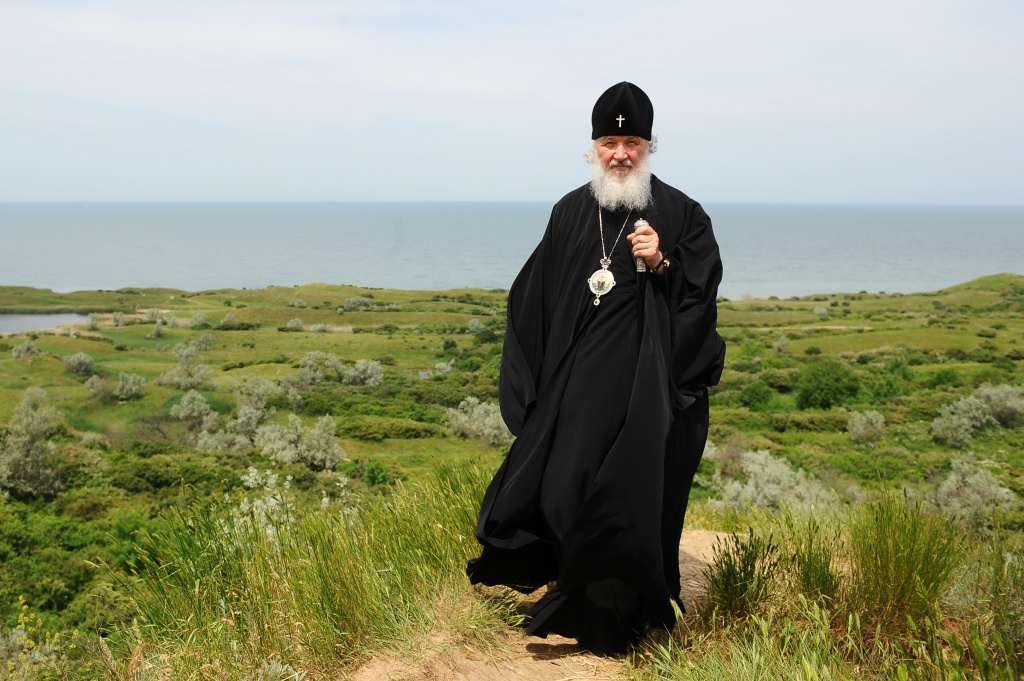
His Holiness Patriarch Kirill (secular name Vladimir Mikhailovich Gundyaev) was born on November 20, 1946 in Leningrad.
His father, Mikhail Vasilyevich Gundyaev, a priest, died in 1974.
His mother, Raisa Vladimirovna Gundyaeva, a schoolteacher of the German language, in her last years a housewife, died in 1984.
His big brother, Archpriest Nikolay Gundyaev, a professor at Sankt-Petersburg Theological Academy, the honorary rector of the Cathedral of the Transfiguration of Our Lord in Sankt-Petersburg.
His grandfather, priest Vasiliy Stepanovich Gundyaev, a Solovki prisoner, who was repeatedly imprisoned and exiled for his church work and struggle with Renovationism in the 1920s, 1930s and 1940s.
After finishing the secondary school 8th grade, V. Gundyaev worked in the Leningrad Comprehensive Geological Expedition of the North-West Geological Administration from 1962 to 1965 as a technical cartographer, concurrently attending the secondary school.
After finishing the secondary school in 1965, he entered the Leningrad Theological Seminary and then the Leningrad Theological Academy from which he graduated cum laude in 1970 with the degree of Candidate of Theology.
On April 3, 1969, Metropolitan Nikodim (Rotov) of Leningrad and Novgorod tonsured him with the name of Kirill. On April 7, he was ordained as hierodeacon, and on June 1, as hieromonk.
From 1970 to 1971 he was a lecturer of Dogmatic Theology and assistant to the LTA&S. At the same time he was a personal assistant to Metropolitan Nikodim of Leningrad and Novgorod and a form-master of the first-year seminarians.
On September 12, 1971, he was elevated to the rank of archimandrite.
From 1971 to 1974, he was the Moscow Patriarchate representative to the World Council of Churches in Geneva.
From 26 December 1974 to 26 December 1984, he was rector of the LTA&S.
On March 14, 1976, he was consecrated Bishop of Vyborg. On September 2, 1977, he was elevated to the rank of archbishop.
From December 26 1984, he was Archbishop of Smolensk and Vyazma.
From 1986, he was administrator of the parishes in the Kaliningrad region.
From 1988, he was Archbishop of Smolensk and Kaliningrad.
From November 13, 1989, to 2009, he was chairman of the Department for External Church Relations and a permanent member of the Holy Synod.
On February 25, 1991, he was elevated to the rank of metropolitan.
From December 6, 2008, he was Locum Tenens of the Patriarchal See.
On January 27, 2009, by a Local Council of the Russian Orthodox Church, he was elected as Patriarch of Moscow and All Russia.
On February 1, 2009, His Holiness Patriarch Kirill was enthroned.
Education. Work under the guidance of Metropolitan Nikodim (Rotov)
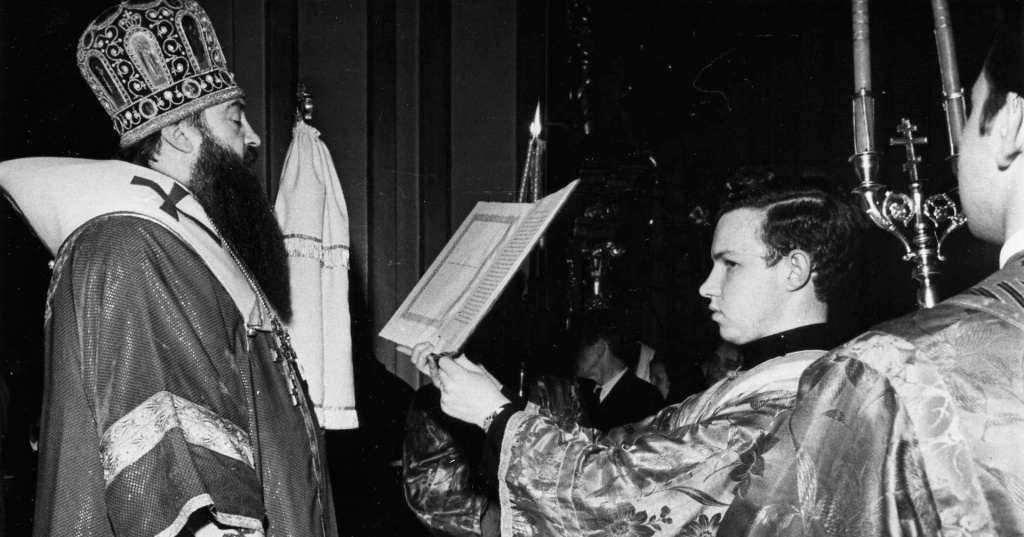
After finishing the secondary school 8th grade, V. Gundyaev worked from 1962 to 1965 in the Leningrad Comprehensive Geological Expedition of the North-West Geological Administration as a technical cartographer concurrently attending the secondary school.
After finishing the school in 1965, Vladimir planned to enter the Department of Physics of the Leningrad University and only after becoming a higher secular education graduate to devote himself to the church ministry. However, his big brother Nikolay, at that time a student of the Leningrad Theological Seminary, organized his meeting with Metropolitan Nikodim (Rotov) of Leningrad. That meeting became decisive for the life of the future Patriarch as Metropolitan Nikodim advised him to enter the seminary right away.

In the beginning of 1966, Metropolitan Nikodim appointed Vladimir as his personal secretary. Having already formed an opinion about student Gundyaev’s outstanding abilities, the metropolitan stipulated an accelerated knowledge growth, i.e. Vladimir was to study the material and pass the examinations for the first two years within one year. Since that time V. Gundyaev began his church service filled with continuous work and a gradually growing list of his duties. The 36 years-old Metropolitan Nikodim was an example for him as, along with administering one of the largest Russian dioceses, he also headed the Department for External Church Relations, the DECR, which actually became in those years the center for decision making in the Church’s internal and external policy.
On April 3, 1969, Metropolitan Nikodim tonsured Vladimir with the name given in honour of Kirill Equal-to-the-Apostle, the Enlightener of the Slavs. On April 7, the Day of the Annunciation of the Most Holy Mother of God, Metropolitan Nikodim ordained him as deacon and on June 1 of the same year, as priest.
During his work together with Metropolitan Nikodim, accompanying him and familiarizing himself with the international activity of the Russian Church, he took part in the Third Pan-Christian Peace Congress in Prague, the Fourth Assembly of the World Council of Churches (WCC) in Uppsala, Sweden, the WCC Central Committee, and the Youth Commission of the Christian Peace Conference.
In 1970, Hieromonk Kirill graduated cum laude and with the Candidate of Theology degree from the LTA&S, having finished the 8-year course within 4 years.
Since December 26, 1974, to December 26, 1984, he held the post of rector of the Leningrad Theological Schools.
External church work after graduation from the academy
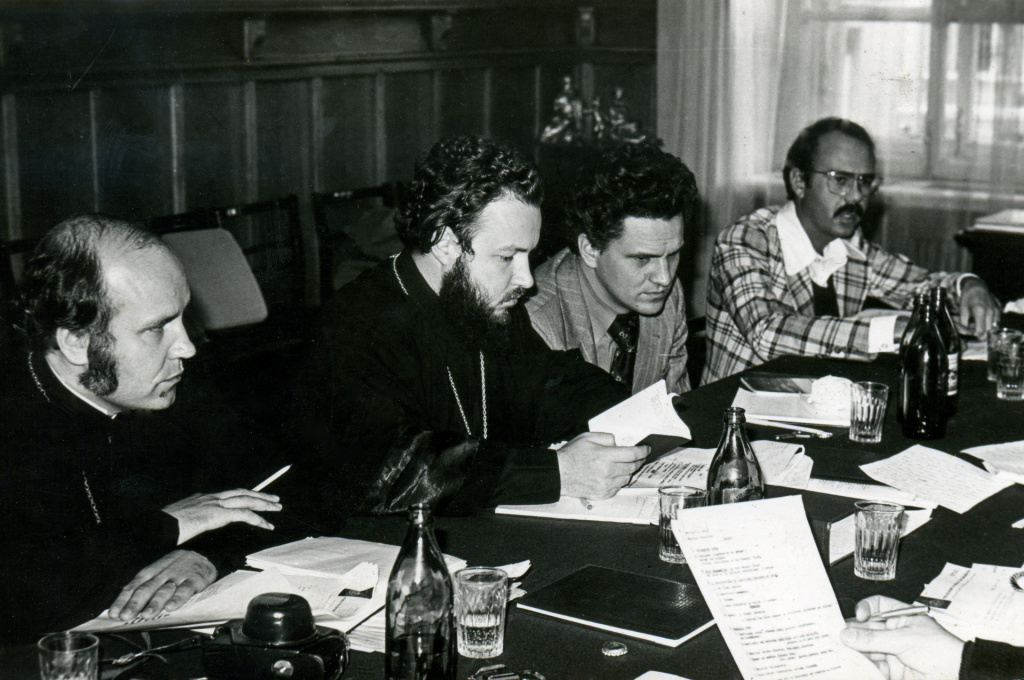
In 1971, Metropolitan Nikodim charged Hieromonk Kirill with making a decision on his own concerning the Russian Orthodox Church’s joining SYNDESMOS - the World Fellowship of Orthodox Youth. SYNDESMOS was founded in 1953 on the initiative of Orthodox theologians and church leaders including Archpriests John Meyendorff and Alexander Schmemann and initially functioned only in Western Europe and the USA. Since 1964, it has included Orthodox theological schools in Eastern Europe.
Hieromonk Kirill was to make a decision concerning the Russian Church’s joining SYNDESMOS in the middle of the SYNDESMOS assembly to which he had come with two letters already signed by Metropolitan Nikodim, one on joining this organization and another on ‘postponing the decision’. He made the choice on his own - the theological schools of the Moscow Patriarchate did join SYNDESMOS. Hieromonk Kirill was elected to the SYNDESMOS Executive Committee. It became his first diplomatic task.
On September 12, 1971, the Day of the Holy Prince Alexander Nevsky, Hieromonk Kirill was elevated to the rank of archimandrite. On October 19 of the same year, the Holy Synod appointed him as the Moscow Patriarchate representative to the World Council of Churches in Geneva.
Archimandrite Kirill took an active part in all the activities of the WCC from 1975 as a member of the WCC Central and Executive Committees up to 1988, participating in their work without missing a single meeting. In the first part of the 1970s, Archimandrite Kirill became a permanent member of the theological dialogue between the Russian Orthodox Church and representatives of other confessions. The three years he spent in Geneva gave to the future Patriarch an opportunity not only to accumulate an immense experience in the area of church diplomacy but also to communicate with Russian clergy and faithful abroad.
Service at the See of Smolensk and Kaliningrad (1985-2009)
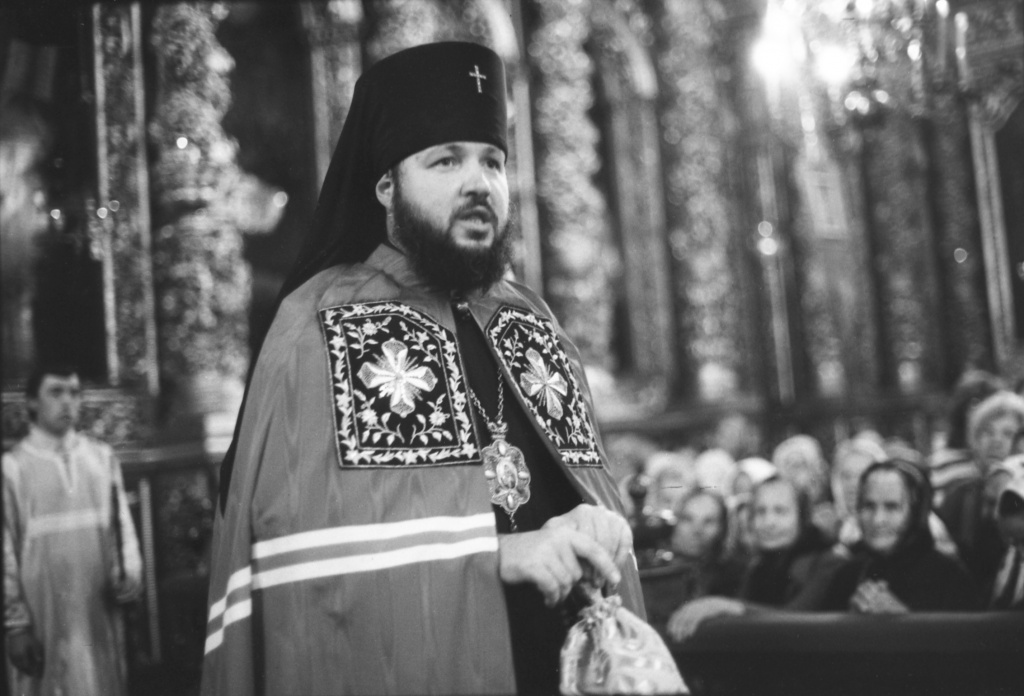
During Metropolitan Kirill’s service at the See of Smolensk and Kaliningrad, 166 parishes were opened (94 in Smolensk and 72 in Kaliningrad and its region), 52 Orthodox churches were restored and 71 churches were built.
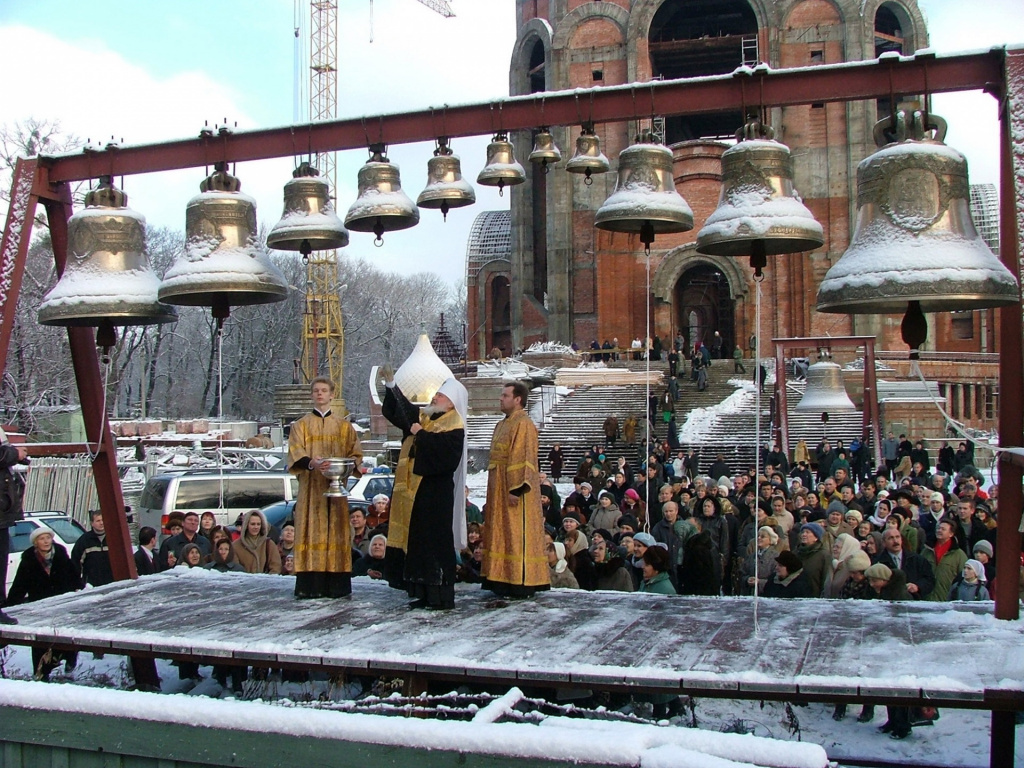
In 1989, a Smolensk Theological College was opened and in 1995 it was transformed into the Smolensk Theological Seminary.
Since 1988, functioning there has been an Inter-diocesan Theological College, which trains church choir conductors, catechists, icon-painters and nurses. Most of the diocesan parishes run Sunday schools. There are Orthodox schools and kindergartens.
Since 1992, the Basics of Orthodox Culture is taught in schools in the Smolensk and Kaliningrad regions.
Chairman of the DECR
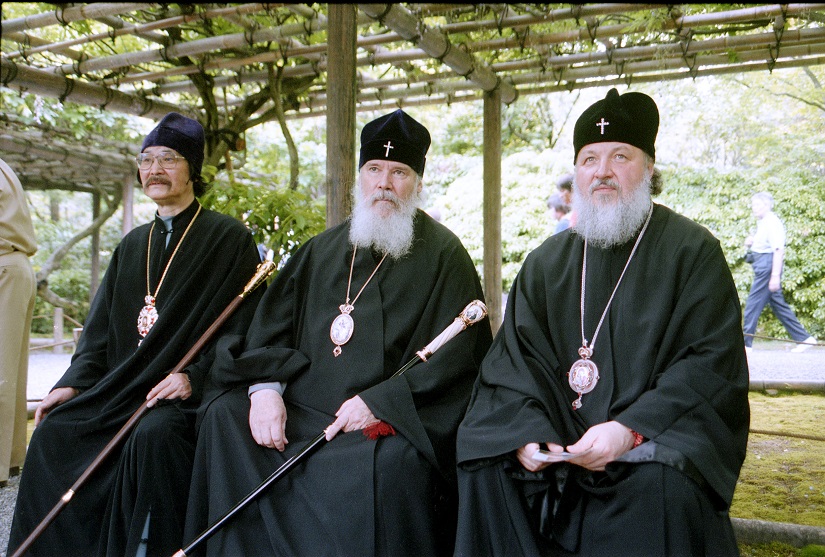
As the DECR chairman, he was engaged in legislative work as representative of the Russian Orthodox Church in commissions for developing the USSR law ‘On Freedom of Conscience and Religious Organizations’ of October 1, 1990, the RSFSR law ‘On Freedom of Religion’ of October 25, 1990 and the Federal Law of the Russian Federation ‘On Freedom of Conscience and Religious Associations’ of September 26, 1997.
Another document to which Metropolitan Kirill put considerable effort was ‘The Russian Orthodox Church's Basic Teaching on Human Dignity, Freedom and Rights’.
He took part in many international public and peacemaking initiatives including the development of the Church’s stand adopted and peacemaking actions made during the events of August 1991 and October 1993.
He was one of the initiators of establishing in 1993 the World Russian People’s Council. He was a participant and key-speaker at the Councils (1993-2008). Since his election to the Patriarchal See he has been the chairman of the WRPC (since 2009).
As chairman of the Holy Synod commission for reviving religious and ethical education and charity he initiated the setting up of synodal departments for religious education, social service and charitable work, for cooperation with the Armed Forces and law-enforcement. He is the author of the Concept for Reviving Charity and Religious Education adopted by the Holy Synod on January 30, 1991.
He worked out and submitted to the Holy Synod ‘A Concept for Russian Orthodox Church’s Cooperation with Armed Forces’ in 1994.
From 1995 to 2000, he guided the development of ‘The Basis of the Russian Orthodox Church’s Social Concept’ and presented it to the 2000 Bishops’ Jubilee Council.
He took an active part in normalizing the church situation in Estonia. In this connection, he visited the Patriarchates of Antioch and Jerusalem (trips to Lebanon, Syria, Jordan and Israel in 1996) and participated in the negotiations with representatives of the Patriarchate of Constantinople in Zurich, Switzerland, in March and twice in April 1996, in Thessaloniki, Tallinn and Athens (1996), in Odessa (1997), Geneva (1998), Moscow, Geneva and Zurich (2000), Vienna, Berlin and Zurich (2001), Moscow and Istanbul (2003). He also made repeated visits to Estonia for negotiations with the country’s government officials, parliament members and business.
On December 23, 1993, Metropolitan Kirill initiated a meeting of heads and representatives of traditional Russian religious associations at the DECR including Islamic, Judaic and Buddhist communities. It was agreed to set up an Interreligious Council in Russia with a standing secretariat. They elected five members of the presidium including Metropolitan Kirill, Supreme Mufti Talgat Tajuddin, Mufti R. Gainutdin, Chief Rabbi Adolf Shayevich, and Pandido Khambo-Lama Damba Ayushev.
He was actively involved in peacemaking actions for Yugoslavia, making several visits to Belgrade, holding negotiations with the country leaders, initiating the creation of a non-formal international Christian peacemaking group for Yugoslavia (Vienna, May 1999) and convening an international inter-Christian conference on ‘Europe after the Kosovo Crisis: Further Actions by Churches’ in November 1999 in Oslo, Norway.
He was a key-speaker at the Parliament Hearings on ‘The Russian Orthodox Church’s Basic Social Concept’ (Moscow, 2001) and on ‘Religion and Health’ (Moscow, 2003), on ‘Improvement of the Law on Freedom of Conscience and Religious Organizations: Implementation, Problems and Ways of Solution’ (Moscow, 2004).
He initiated a dialogue with European organizations in Brussels and establishment of a Representation of the Russian Orthodox Church to European International Organizations in 2002.
Cooperation with Local Orthodox Churches
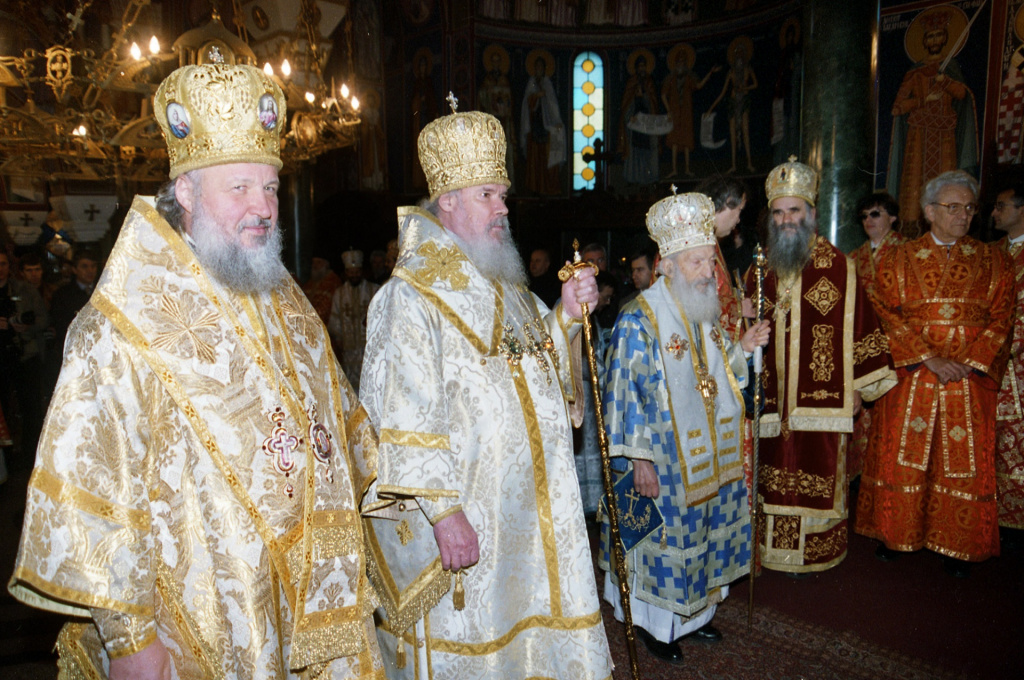
Metropolitan Kirill put in much effort to the development of bilateral contacts of the Russian Orthodox Church with each of the Local Orthodox Churches.
He was the first to represent the Russian Orthodox Church in SYNDESMOS - the World Fellowship of Orthodox Youth. From 1971 to 1977, he was a member of the SYNDESMOS Executive Committee. He attended the 8th (Boston, 1971), the 9th (Geneva, 1977), the 10th (Finland, 1980), and the 14th (Moscow, 1992) General Assemblies of this organization. He participated in the first Pre-Council Pan-Orthodox Conference (Chambesy, 1976) and the Inter-Orthodox Commission for Preparing a Holy and Great Council of the Eastern Orthodox Church (Chambesy, 1993, 1999). He was a key-speaker at the Orthodox consultation on ‘Common Understanding and Vision of the WCC’ (Chambesy, 1995). He attended the Pan-Orthodox Consultation on Ecumenism (Thessaloniki, 1998) and the Synaxis of Heads of Local Orthodox Churches for healing the Bulgarian church schism (Sofia, 1998); the Pan-Orthodox celebration of the 2000th anniversary of Christianity on January 7, 2000, in Bethlehem; the negotiations between the Patriarchates of Moscow and Constantinople (Istanbul 1977, Geneva 1978, Moscow 1991, Istanbul 1993), as well as regular consultations on current problems between the two Churches. He held negotiations with the Orthodox Church of Constantinople on Estonia and with the Romanian Orthodox Church on the problem of the Metropolis of Bessarabia in Moldova (twice, in 1997 in Geneva and in 1999 in Kishinev).
In 2005, he as head of the Russian Orthodox Church delegation attended the enthronement of Patriarch Theophilos III of Jerusalem.
In his capacity of the DECR chairman, he was part of official delegations on visits to all the Local Orthodox Churches. In particular, he accompanied His Holiness Patriarch Pimen and His Holiness Patriarch Alexy II during their visits to other countries.
As Primate of the Russian Orthodox Church he made official visits to Local Orthodox Churches: those of Constantinople (2009), Alexandria (2010), Antioch (2011), Jerusalem (2012), Bulgaria (2012), Cyprus (2012), Poland (2012), and Greece (2013).
Inter-Christian relations and cooperation
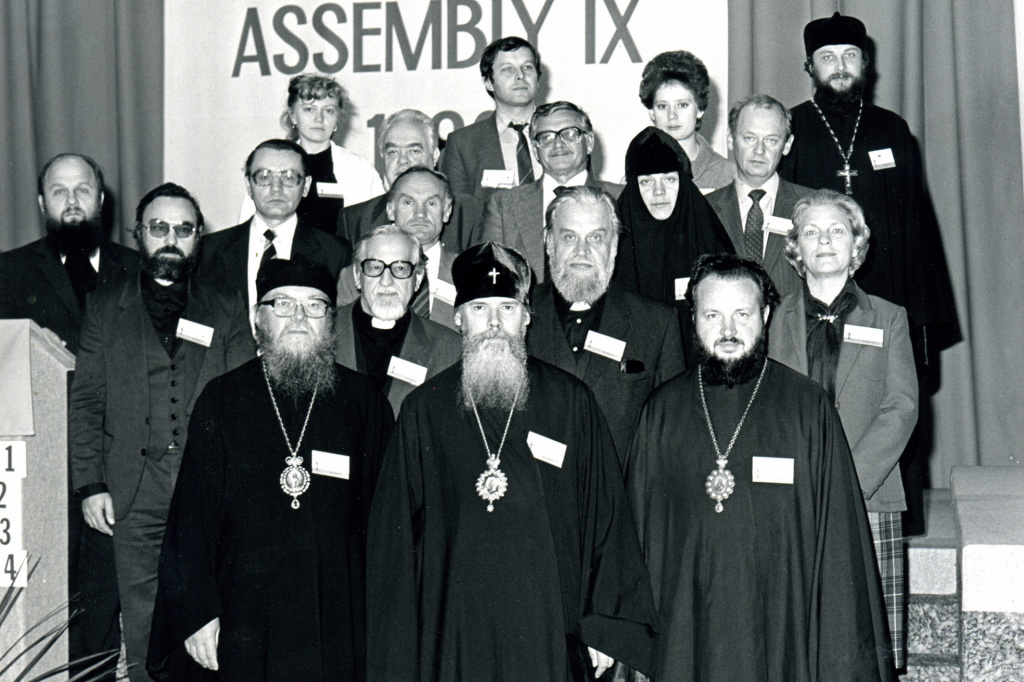
In the 1990s, Metropolitan Kirill and the DECR developed a new strategy for building relations with the non-Orthodox world, which was adopted by the 2000 Bishops’ Jubilee Council. The task of Orthodox Christians is to restore the unity of the Universal Church on the basis of the intact truth, i.e. Orthodoxy.
The Russian Orthodox Church’s dialogue with the non-Orthodox has been built in several areas: 1) the studying problems of theological nature in which the Russian Orthodox Church acts as a guardian of the apostolic and patristic Tradition of the Orthodox Church and the teachings of the Ecumenical and Local Councils; 2) joint work in the areas of social service where ‘it does not conflict with the doctrine and spiritual practice… in the amount and forms that the Church believes to be the most suitable at a given moment’; 3) unconditional rejection of proselytism on the part of traditional confessions and prevention of sectarian missionary activities.
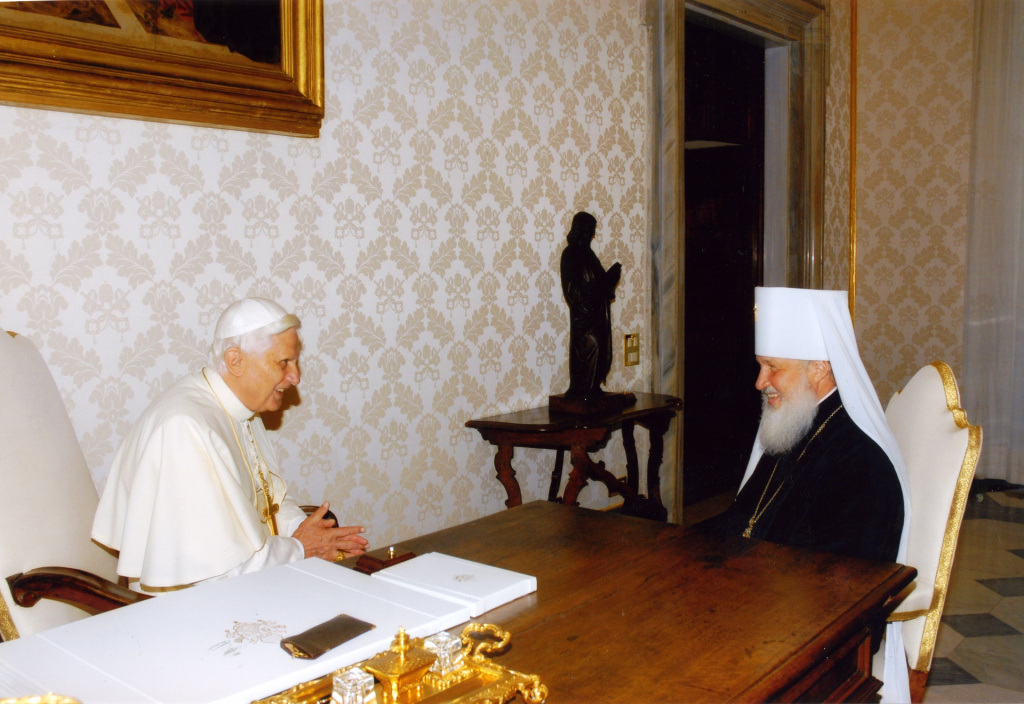
In the 2000s, a special emphasis was made on the joint witness to be born to the Christian basis of the European civilization, on peacemaking, advocacy of the rights of Christians, their ethical principles, etc. These principles defined the manifold theological and church diplomacy of the DECR and its chairman in dialogues with the non-Orthodox world both in the form of bilateral relations and in the work of inter-Christian organizations.
Patriarchal enthronement
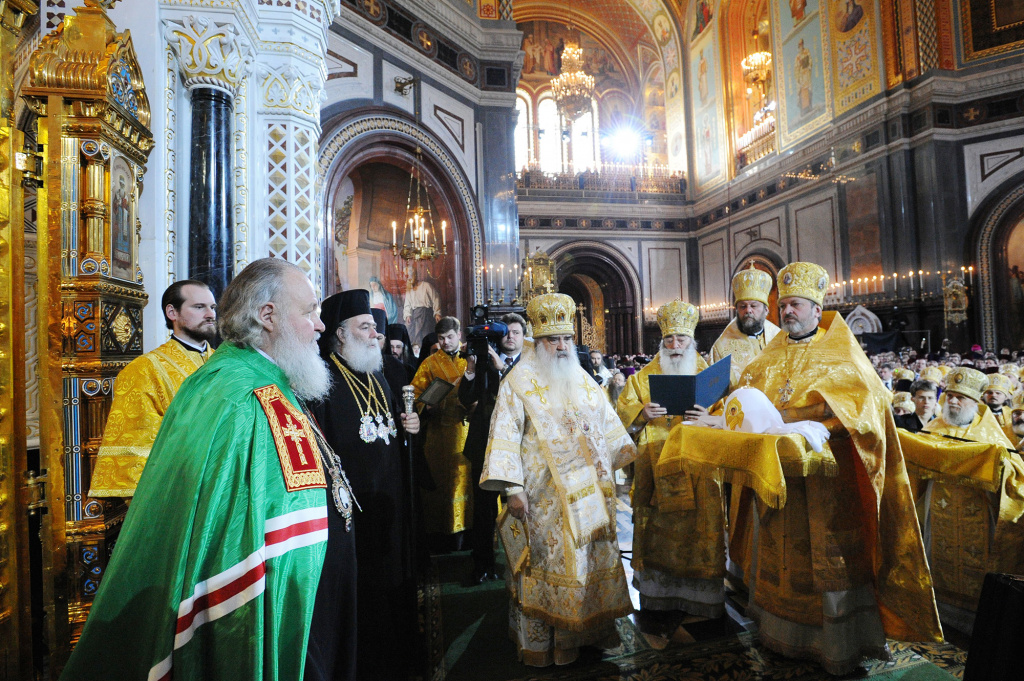
On December 5, 2008, Patriarch Alexy II of Moscow and All Russia died at the age of 80, who had led the Russian Church for over 18 years. The election of Metropolitan Kirill. who occupied the 5th place among the permanent members of the Synod, as Locum Tenens was determined, among other things, by his work as chairman of the DECR, his personal supervision over the most complicated areas in the Church’s relations with the external world throughout the period of the Patriarchal ministry of His Holiness Alexy II.
This is how the future Patriarch Kirill characterized the Primatial ministry of his predecessor:
‘His Holiness took over the Church weakened by decades of prosecution and oppression… However, at the same time our country was overwhelmed by tremendous historical challenges and the weak Russian Church had to assume these challenges, seeking to preserve her people, to help them find faith. And today, His Holiness the Patriarch standing before the face of God can say that he has left to us quite a different Church. She is no longer an infirm, a weak Church… because the Church is together with her people, because the spiritual has grown through the material, because millions of people have realized that without God and His truth there can be no human truth. His Holiness was aware that the Russian Orthodox Church is the only one that preserves the traditions, memory and values of Holy Rus’.
On December 5, Metropolitan Kirill together with the assembly of bishops celebrated the Divine Liturgy at the Church of Christ the Saviour. After the liturgy, the requiem service was held for Patriarch Alexy II, It was led by Patriarch Bartholomew of Constantinople. Among those who participated in the service were Primates of the Georgian, Romanian, Greek, Albanian Churches and the Church of the Czech Lands and Slovakia and representatives of all the Local Orthodox Churches, hierarchs of the Russian Orthodox Church, numerous honorary guests, among them Russian President D. A. Medvedev and Chairman of the Russian Federation Government V. V. Putin, as well as Presidents of Byelorussia, Moldavia, Armenia, and heads of diplomatic missions from dozens of states. Speaking at the funeral service about his predecessor, Metropolitan Kirill gave special attention to the unity of Orthodox nations spiritually nourished by the Russian Church.
The election of the 16th Patriarch of Moscow and All Russia was held in an atmosphere of unprecedented openness. During the whole period between the death of Patriarch Alexy II and the election of Metropolitan Kirill to the Patriarchal See, the mass media held a lively discussion about candidates. The Bishops’ and Local Councils had shown that Metropolitan Kirill was the only hierarch capable of rallying an absolute majority of the episcopate, clergy, monastics and laity of the Russian Orthodox Church.
On February 1, 2009, Metropolitan Kirill was solemnly installed to the See of Patriarchs of Moscow and All Russia in the Church of Christ the Saviour in Moscow. In his response to the speeches of greeting him as the newly elected Patriarch, he said:
‘It is with humbleness and full awareness of responsibility that I accept the lot of God through which I have been entrusted with the Patriarchal ministry. It is great. It involves great responsibility. However, in the center of this ministry is the Lord’s Cross, a Cross of so great dimensions as can be perceived and felt only by the one who carries it… The Primate of a Church bears [this cross], though it is above the strength of one person. Primates bear it because together with them it is borne by archpastors, pastors and the people of God. The very Church bears this Cross together with the Patriarch’.
